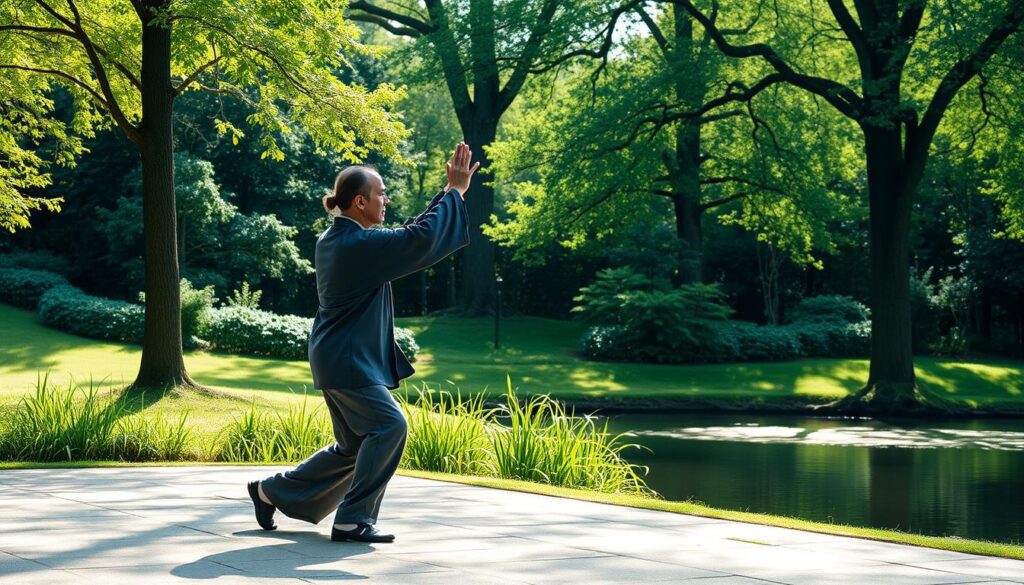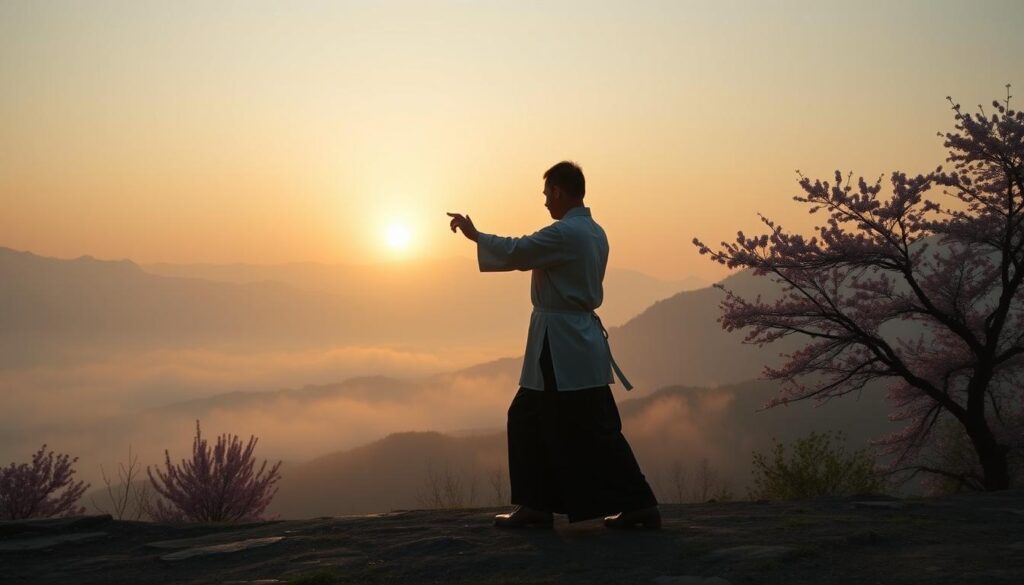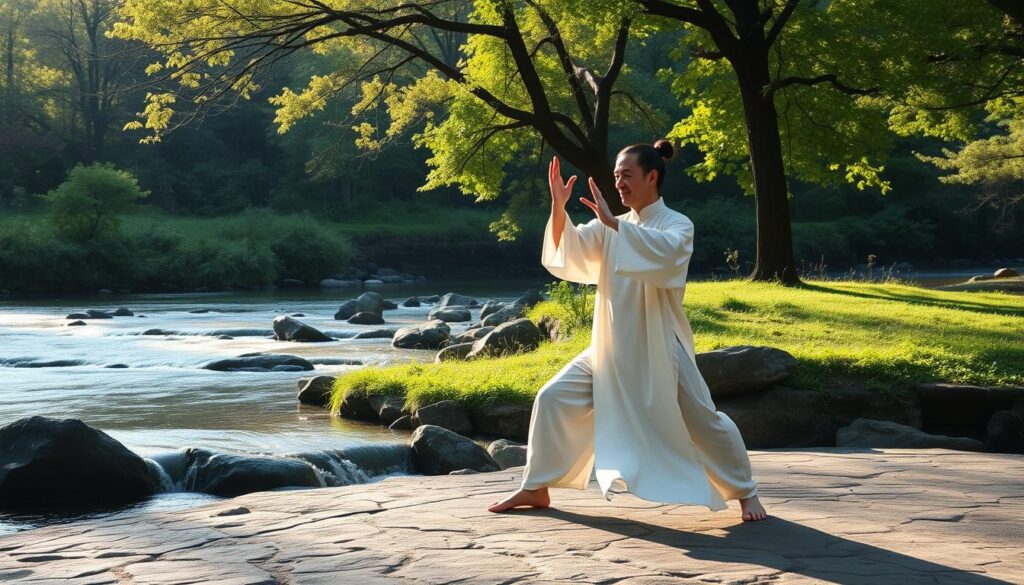Did you know that feng shui and tai chi are closely related in a few important ways? Actually, some refer to feng shui as “tai chi for the environment”, so there is definitely a connection there. To get a better idea of just how tai chi and feng shui are related, let’s start with the basic definition of each of these Far East terms.
Feng shui (pronounced fuhng shway) is a Chinese practice of creating harmonious surroundings. This art form uses the arrangement of objects and environments to balance the opposite yin and yang principles in your life. Feng shui is literally translated as “wind water” in English.
Tai chi (the Western world version of the complete name “tai chi chuan” or “taijiquan”) was developed as a Chinese martial art for defensive training. It also produces multiple mental and physical health benefits. It is concerned with striking with energy and redirecting energy in the martial arts sense, and with improving life energy as a physical fitness and meditation practice.
In feng shui the harmonious relationship of “chi” energy to people and places in a particular environment delivers either positive or negative rewards. In tai chi, this type of energy is expressed by the well-known yin / yang symbol, where the white side of the symbol (yang chi) and the black side (yin chi) each contain a small amount of their opposite energy.
Both tai chi and feng shui focus on balance. In the practice of tai chi, as either a physical form of exercise and meditation or as a martial art, balance gives you control. When you have perfect control over balanced energy, you can vanquish any attacker. You also live longer, you suffer fewer diseases and ailments, and your mind and body are both healthy.
Feng shui works to balance incoming and outgoing energies from any room, area or structure. Feng shui uses specific placement of furniture, trees, plants, beams, poles, buildings and other objects or structures to effectively allow for the out-flowing of negative energy and the inward flowing or retention of positive and productive energy.
While one was developed as a martial art form, and the other as a way of maintaining balance, both tai chi and feng shui are closely connected. They are driven by the realization that chi, or energy, can be harnessed to deliver an intended result. With tai chi, the result of chi manipulation and improvement is physical and mental well-being and health. In feng shui, properly balancing the chi forces in nature produces benefits such as wealth, prosperity, fame and good luck.



